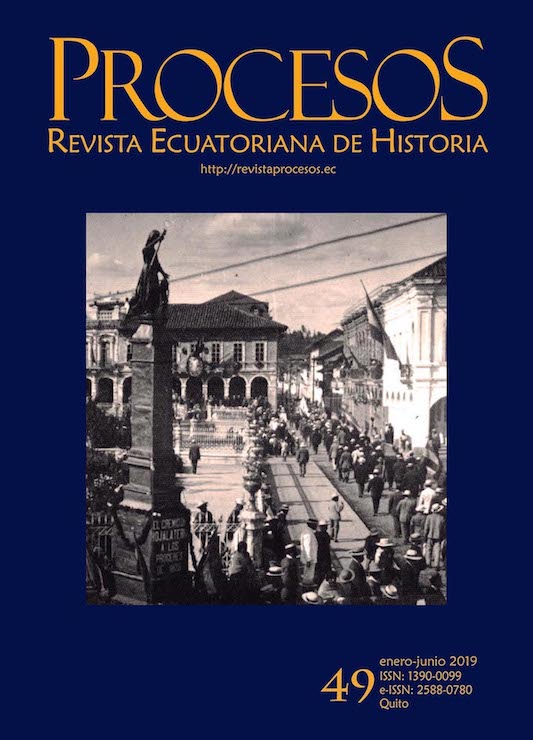Laws Governing the Free Expression of Historians: A Comparative Perspective in the Modern World
Main Article Content
Abstract
This article provides a comparative approach to laws that interfere directly with the free expression of historians, that is, with respect to what they say and write. This body of international law is gathered together into four groups: memory laws, blasphemy laws, hate speech laws, and laws against genocide denial. To examine each group, the article provides a definition and identifies how standards overlap. Finally, the most relevant debates are summarized with respect to their consequences for practicing history
Downloads
Article Details
Copyright
The author grants Procesos the right to copy (Copyright ©), which gives irrevocable and unlimited permission to use, distribute, publish, license, exhibit, record, digitize, disseminate, reproduce and archive the article and/or the associated presentation, in any format or medium, whether currently known or later developed. On this basis, in case the author wishes to publish their work in another non-indexed diffusion medium (since it is not allowed to do so in another indexed diffusion medium), they must request express permission from Procesos. Should this permission be granted, they must reference it as the original publication source. In this sense, once the article has been accepted for publication, the author must sign a Copyright and Consent form, prior to publication. This signed form must be sent to the Editorial Committee.
Letter of originality and transfer of rights
Procesos: revista ecuatoriana de Historia is licensed under the Creative Commons Reconocimiento-CompartirIgual 4.0 Internacional License. Created from the work at https://revistas.uasb.edu.ec/index.php/procesos.

Privacy statement
The names and email addresses entered in this magazine will be used exclusively for the purposes stated in it and will be neither shared with third parties nor used for other purposes.
References
FUENTES PRIMARIAS
ACNUDH. Plan de Acción de Rabat sobre la prohibición de la apología del odio nacional, racial y religioso que constituye incitación a la discriminación, la hostilidad o la violencia. 2012.
Amnistía Internacional. Rwanda: Safer To Stay Silent: The Chilling Effect of Rwanda’s Laws on “Genocide Ideology” and “Sectarianism”. Londres: Amnistía Internacional, 2010.
Article 19. Johannesburg Principles on National Security, Freedom of Expression and Access to Information. Londres: A19, 1996 (trad.: Los Principios de Johannesburgo sobre la Seguridad Nacional, la Libertad de Expresión y el Acceso a la Información).
_____. Defining Defamation: Principles on Freedom of Expression and Protection of Repu- tation (Londres: A19, 2000 (trad.: Leyes que Protegen la Reputación: Principios de Libertad de Expresión y de Protección de la Reputación).
_____. Rights vs Reputations: Campaign against the Abuse of Defamation and Insult Laws. Londres: A19, 2003.
_____. Defamation ABC: A Simple Introduction to Key Concepts of Defamation Law. Lon- dres: A19, 2006.
_____. Expert Meeting on the Links between Articles 19 and 20 of the ICCPR: Freedom of Expression and Advocacy of Religious Hatred that Constitutes Incitement to Discri- mination, Hostility or Violence. Londres: A19, 2008a.
_____. “France: No More ‘Memory Laws’”. Londres: A19, 2008b.
_____. The Camden Principles on Freedom of Expression and Equality. Londres: A19, 2009a. (trad: Los Principios de Camden sobre la Libertad de Expresión y la Igualdad. Londres: A19, 2009).
_____. Memorandum on the Russian Draft Federal Law ‘On Combating the Rehabilitation of Nazism, Nazi Criminals or their Collaborators in the Newly Independent States Created on the Territory of Former Union of Soviet Socialist Republics’. Londres: A19, 2009b.
_____. Rwanda: Comment on the Law Relating to the Punishment of the Crime of Genocide Ideology of Rwanda. Londres: A19, 2009c.
_____. ‘Hate Speech’ Explained: A Toolkit. Londres: A19, 2015a.
_____. The Right to Protest: Principles on Protection of Human Rights in Protests. Londres: A19, 2015b. (trad.: portugués: Direito a protestar: Principios sobre a proteção de direitos humanos em protestos. Londres: A19, 2015).
Barros, Carlos, y 348 historiadores. “Documento en solidaridad con el historiador Dionisio Pereira”. Santiago de Compostela: Historia a Debate, 2008.
Comité de las Naciones Unidas para la Eliminación de la Discriminación Racial. Recomendación general 35. 2013.
Comité Mundial por la Libertad de Prensa. Insult Laws: An Insult to Press Freedom. Reston, VA: WPFC, 2000.
Constitución de los Estados Unidos de América, Enmienda I. 1791.
Convención para la Prevención y la Sanción del Delito de Genocidio. 1948.
Declaración Conjunta sobre Universalidad y el Derecho a la Libertad de Expresión. Viena: OSCE, 2014.
Declaración de los Derechos del Hombre y del Ciudadano. 1789.
Declaraciones Conjuntas de los Representantes de los Organismos Intergubernamentales para Proteger la Libertad de los Medios de Comunicación y de la Expresión. Viena: Organización para la Seguridad y la Cooperación en Europa, OSCE, 2013.
Declaración Universal de los Derechos Humanos. 1948.
ECHR. Cultural Rights in the Case-Law of the European Court of Human Rights. 2011 (la versión actualizada es de 2017).
_____. Lingens v Austria (9815/82). 1986.
_____. Tolstoy Miloslavsky v United Kingdom (8/1994/455/536). 1995.
_____. Sugg and Dobbs v Sweden (45934/99). 1999.
_____. Vajnai v Hungary (33629/06). 2008.
_____. Gollnisch v France (48135/08). 2011.
_____. Fáber v Hungary (40721/08). 2012.
_____. Fratanoló v Hungary (29459/10). 2012.
_____. Perinçek v Switzerland (27510/08). 2015.
High Court of Justice Queen’s Bench Division. David Irving v Penguin Books and Deborah Lipstadt (EWHC-QB-115). 2005.
Human Rights First. Blasphemy Laws Exposed: The Consequences of Criminalizing ‘Defamation of Religions. Nueva York: HRF, 2012.

